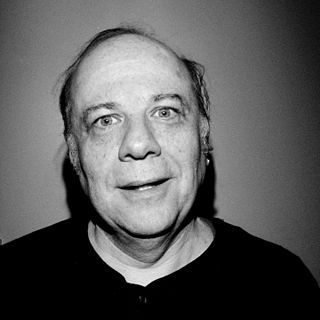A Quote by Richard Rohr
We don't have much wisdom about the second half when things really open up and end up looking a lot more progressive. In my own Catholic church, for example, we're sort of circling the wagons today by thinking that more moral strictures, more exclusionary rules on this or that, that that's going to do for the first half of life. I don't think it really does.
Related Quotes
I think everybody who really wants to change things has to allow themselves to be angry in a constructive way, and you have to fully understand the thing you're trying to change. We really need to get serious about this now; there needs to be real, effective programs. I think there needs to be a little bit more strategy involved and a little more realism, to be pragmatic and realistic, looking at the way we as women contribute to the problem. Once the second half of the population stops doing it, it's going to end.
Language is the primary way we communicate with each other, and we have really strong feelings about what words mean, and about good language and bad. Those things are really based on sort of an agglutination of half-remembered rules from high school or college, and our own personal views on language and the things we grew up saying, the things we grew up being told not to say.
My experience, with both my parents, is that grief has a lot of down, sad things, but I was also really emotionally raw, in the first year after each of them passed. Flowers smelled more intensely, my relationships were hotter, and I was more willing to risk. I was going for it a lot more. I was 'unsober' and I wasn't playing by my rules.
What keeps my flame burning is, first, I'm ornery and persistent. I don't like giving up on things and I believe in my band and I just happen to have the sort of personality that really likes to see things to the bitter end. The second reason is the incredible people I've been fortunate to meet as a result of pursuing this insane, money-hemorrhaging enterprise. Literally every time I release a well-reviewed, poor-selling record, the net result is that I end up meeting more kind, like-minded, creative and brilliant people. That's really all the reward I need.
It felt really radically uncomfortable. And I was really not sure at first about releasing that body of work. But then the more I thought about it, the more I thought that that position, that location, is something that's just sort of interesting in its own right, as an experience, as a process. Again, we're talking about this rubric, this set of rules, this grid that I toss on top of different locations globally. This is what came out of Africa.
We have to separate here the church in its broad sense. We have Catholics, Protestants, Eastern Orthodox churches. The Catholic church is a corporation like a chief executive. A fairly homogenous operation. Today its attitude toward anti-Semitism is much more severe than it's ever been. The Catholic Church today is much less the problem than the other groups.






































